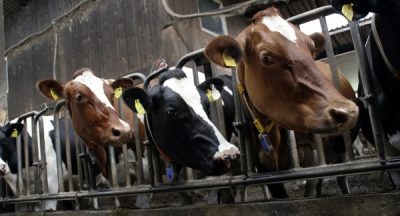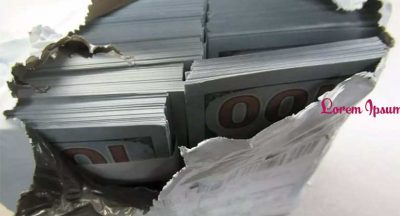Counterfeit Cancer Medicines Multiply
The fake Avastin that surfaced in the U.S. this year grabbed headlines, but it was just one example of a growing problem in the pharmaceutical world: the rise of counterfeit cancer drugs.Fake versions of costly cancer medicines have appeared in increasing numbers in Asia and the Middle East in recent years and occasionally in Europe and the U.S. In 2011, cancer drugs ranked eighth among the top 10 types of drugs targeted by counterfeiters, according to the Pharmaceutical Security Institute, an industry-funded group; five years ago, they weren’t on the list at all.Authorities have seized some of the fakes in warehouses or shipping containers before they reached patients. But other counterfeits have turned up in pharmacies and hospitals, in one case injuring 80 patients in Shanghai.Counterfeiters are targeting cancer drugs because of the big profits to be made. While pills such as Viagra, long a favorite of the counterfeit trade, cost about $15 to $20 a tablet, a 400-milligram vial of the injectable drug Avastin costs about $2,400.Many of the fake cancer drugs seized in recent years were produced in China, where weak regulation and rapid industrialization have helped counterfeiting flourish. Law-enforcement authorities investigating the origins of the counterfeit Avastin found in the U.S. this year have considered China as a possible source.The fake Avastin traveled through Turkey and the U.K. before reaching the U.S. market. The U.S. Food and Drug Administration later warned dozens of doctors that they might have purchased the fakes from distributors owned by Canada Drugs, a Winnipeg Internet pharmacy company. The fakes contained starch, salt, cleaning solvents and other chemicals and none of the genuine drug’s active ingredient, bevacizumab, according toRoche HoldingAG,ROG.VX-0.92%Avastin’s manufacturer.The FDA declined to comment on the investigation of the matter, which it is leading, citing a policy against discussing continuing probes. Roche declined to comment on the possible origins of the counterfeits.Canada Drugs executives didn’t respond to a request for comment. The company’s employees previously acknowledged in interviews that they shipped the fake drug but said they didn’t know it was counterfeit.The fake Avastin found in the U.S. is just a small part of the global trafficking in counterfeit cancer drugs. A police raid in the Chinese city of Guangzhou last year netted 23 million tablets of a variety of counterfeit drugs, including bogus copies of the generic breast-cancer drug tamoxifen, according to Chinese law-enforcement documents.In March 2010, customs officers in Malta seized a cargo of counterfeit Gleevec, NovartisAG’sNOVN.VX-0.43%leukemia drug, according to Anthony Busuttil, director of enforcement for Maltese customs. He declined to comment on where the fakes came from or where they were being shipped.”There’s been an increase I’d say in the last five to six years” in the counterfeiting of cancer drugs, said Andrew Jackson, head of global security at Novartis. “The industry is obviously looking at this more rigorously than ever before….I suspect that the bad guys have clocked onto the huge profits that can be made.”The most serious case yet to hit Europe involved fakes of AstraZeneca AZN.LN-0.46% PLC’s breast-cancer drug Casodex, which reached U.K. pharmacies in 2007. The counterfeits were made in China, and sent through Hong Kong, Singapore and Belgium before reaching the U.K., where a little-known wholesaler called Consolidated Medical Supplies repackaged the tablets in French packaging and sold them to unsuspecting wholesalers and pharmacies, according to the U.K.’s Medicines and Healthcare products Regulatory Agency, or MHRA.The head of Consolidated Medical Supplies, a Briton named Peter Gillespie, was sentenced to eight years in prison in 2011 for counterfeiting-related offenses including conspiracy to defraud.The U.K. tried to recall the bogus cancer drugs, along with fake schizophrenia and heart-disease medications also sold by Mr. Gillespie, but was unable to account for 700,000 doses that already had reached pharmacies and patients.A Chinese national named Kevin Xu was responsible for selling the counterfeits, according to the MHRA. Mr. Xu was later caught attempting to sell the same types of counterfeits to undercover federal agents in Houston and in 2009 was imprisoned in the U.S. for distributing counterfeit and misbranded pharmaceuticals.Simeon Wilson, global security director at AstraZeneca, said the company now has four staffers in China dedicated to hunting down counterfeit factories. The investigators assemble evidence of alleged wrongdoing and give it to Chinese police for enforcement action.”When we do it, and do it properly, the Chinese authorities have never turned us down,” he said.Still, in the southern manufacturing city of Guangzhou alone, where many of the Chinese-made fakes originate, there are “thousands and thousands” of counterfeiting companies operating, he said. Some making counterfeit medications are licensed as chemical manufacturers, which means they aren’t subject to regulation or inspections by China’s State Food and Drug Administration.The SFDA and China’s Ministry of Public Security didn’t respond to requests for comment for this article.Fake cancer drugs coming out of China have been found to contain everything from harmless placebo ingredients to potentially harmful material to some of the active ingredients in the genuine drugs, said Novartis’s Mr. Jackson. The counterfeit Casodex that reached the U.K. contained 50% to 80% of the active ingredient in the legitimate product, along with “unknown impurities,” the MHRA said.The regulator didn’t respond to questions about whether the fakes had harmed any patients.Chinese patients have been particularly vulnerable to the counterfeits. In 2010, 80 patients taking part in a clinical trial in Shanghai developed acute inflammation of the eye after doctors inadvertently gave them counterfeit Avastin, according to a 2011 report in the New England Journal of Medicine.According to the Shanghai government, 17 of the patients required surgery to fix the problem. The fake Avastin vials contained saline that was contaminated with bacterial endotoxin, the Shanghai government said.Last year, 11 people were convicted of making and selling the counterfeits, including Wu Guosong, a counterfeiter from Heilongjiang province identified by authorities as the group’s ringleader. He got a prison sentence of two years and 10 months.
http://online.wsj.com/article/SB10001424127887323320404578211492452353034.html
Related Posts
Fake spare parts’ growth beats auto sales.
CHENNAI: The Rs 22,000-crore counterfeit auto parts industry — growing faster...
Animal feed producer sues distributor on counterfeit claims
The speciality feed maker, based in California, claims VBC Peptide Inc, also...
Turkish diplomatic personnel apprehended while smuggling cigarettes, drugs
A.İ, who worked at the Turkish Consulate in İran's city of Urmia was apprehended...
Chicago Authorities Seize $685K In Fake Money
It happened between Saturday (May 15) and Monday (May 17). U.S. Customs and...





